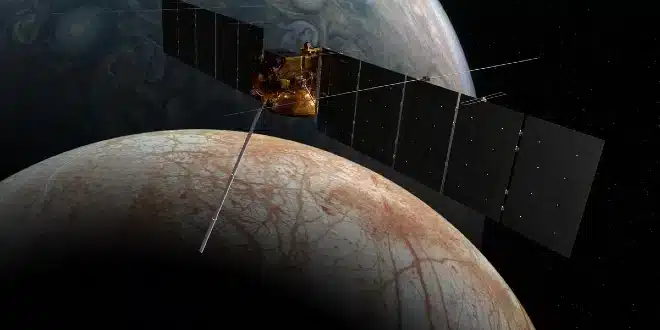In October 2024, NASA will launch the Europa Clipper mission, aiming to investigate Jupiter’s moon Europa, which shows promising signs of an underground ocean. This mission, however, is not just a scientific endeavor; it’s also a vessel for human hopes and dreams, encapsulating a message intended to represent humanity’s achievements and aspirations in the realms of science, technology, education, art, and math, as stated by Lori Glaze, the Planetary Science Division Director at NASA Headquarters.
Europa Clipper will house a triangular plate adorned with symbols and texts that epitomize humanity’s spirit of exploration and desire for knowledge. Made of tantalum, the plate will feature an engraving of a poem by US Poet Laureate Ada Limon titled “In Praise of Mystery: A Poem for Europa,” along with the names of over 2.6 million people collected from the public.
Additionally, the plate will display waveforms representing the word “water” in 103 different languages, underscoring the universal importance of water. This inclusion signifies Earth’s connection to Europa and the shared necessity of water for life as we understand it.
The mission itself is a tribute to human curiosity and the ongoing quest for understanding, drawing inspiration from the work of pioneers like Frank Drake, who formulated the Drake Equation to estimate the potential for communicative extraterrestrial civilizations in the Milky Way. This equation factors in various elements that contribute to the possibility of life beyond Earth.
Robert Pappalardo, the Project Scientist at NASA’s Jet Propulsion Laboratory, expressed excitement about the mission’s potential to uncover new knowledge about Europa. After traveling 1.6 billion miles (about 2.6 billion kilometers), the Europa Clipper is set to orbit Jupiter by 2030, conducting 49 close flybys of Europa.
Launching from the Kennedy Space Center in Florida, the Europa Clipper mission promises to peel back the layers of one of the most intriguing celestial bodies in our solar system, sparking imagination and encouraging future explorations of the unknown.


